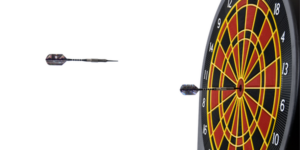Most people talk about the importance of their to-do list, but it is only one tool in your productivity toolbox. To achieve high levels of productivity, you must also create a calendar that is well-planned and prioritised.
A calendar can be far more powerful than a to-do list. We treat something on the calendar with a lot more respect. It’s an allocation of time and detail, confirming who is doing what and by when.
We’ve all heard someone say, ‘Hang on, let me check my calendar…’ When was the last time you heard somebody say, ‘Hang on, let me check my to-do list…’?
With a to-do list, it’s very easy to put off a task for a day or two, while adding more and more tasks until it overwhelms you. Your attention isn’t prioritised towards tasks that need it, which keeps you busy but unable to progress.
To accomplish everything on your to-do list and move the business needle, how should you use your calendar?
Set up your calendar for success
Putting something into your calendar is making a true commitment to it. It has a time and date allocated to the task or event. You must decide if something is worthy of going in your calendar, and, if so, how much time you should allocate to it.
When setting up your calendar, follow these three rules:
- Structure it carefully. Think about it. Give careful thought to everything that goes into it.
- Defend it. Resist changes and stick with it. If it’s in the calendar, it’s happening.
- Do not neglect it. Keep it up to date and plan it with enough time in advance, so you’re as prepared as possible.
It’s very easy to write something into your calendar, and then deliberately (or accidentally) ignore it when something ‘urgent’ lands on your desk.
To achieve maximum productivity, you must reject survival tasks and stick to the plan. If it’s a solo task in your calendar, it’s easy to neglect. Resist. The true test of your personal productivity is what you do when you are alone, and there’s nobody else to hold you accountable.
The first two steps don’t work without step 3.
You need to defend the items in your calendar. If you have thought carefully about what’s in your calendar and the time allocated to it, you must have a very good reason to change it.
This is an excellent way to ward off the survival tasks that can creep back in if you let them.
A calendar should have parameters. It’s a reflection of what you can do and when. Your ability to execute in line with your well-thought-out strategy depends on how you use your time, and how you use your time depends on what you put in your calendar.
You also defend your calendar by putting in the extra effort when required. We’ve all been in a situation where we have a meeting tomorrow morning, but we must finish that report. Do you bump the meeting, or put in the extra time tonight to finish the work?
Well, if the meeting is on your calendar in the first place, then clearly it’s important, and you’re not going to build a good reputation for your business if you have a pattern of being unreliable. So, that should answer the question.
Prioritising business tasks is about patterns and mindset
Your calendar should be non-negotiable (except for genuine code-red emergencies). So how do you make time for the inevitable survival tasks that will still spring up from time to time?
The answer is…you don’t. Nobody can make time, despite how often people use that phrase.
Instead, you need to start allocating time. It’s a precious resource, just like the money in the bank. There’s only so much of it, and if you waste it, it’s never coming back. So, the answer is you allocate time in your calendar to deal with problems because nobody can completely avoid survival tasks. Allocate 30 or 45 minutes twice a day to deal with any pressing issues.
That way, when somebody knocks on your door, you can simply ask them to leave it on your desk and tell them you’ll get back to them (after your truly productive work is complete).
I don’t recommend allocating this time at the end of the day. These bonus tasks can turn into an insurmountable pile of things to do, and when you’re tired at the end of a busy day, you may just give up. Or, you may end up at your desk until 8 pm, tired and frustrated. That’s not productive.
Your calendar is the best tool for productivity. Remember, there are only two elements you need to manage: time and tasks. Your calendar will help you manage both.
Don’t want to get rid of your to-do list?
It’s fine to have a to-do list as well. You’re probably not going to add a calendar event to remind you to phone someone. (That would take the organisation to a whole new level!) You’ll make a quick note for yourself. This is perfectly fine, as long as your calendar is your master tool for managing everything you do.
If you can’t break up your to-do list, ensure you allocate time regularly to clean it up. So you don’t end up in the same position you are in now. I know a small business owner who allocates the afternoon of the last day of every month to this. If something has been on there too long, it gets deleted or delegated.
Stick to the rule – if it’s not on your calendar, you shouldn’t be working on it.
This is an alarm bell. This is a distraction. The only thing that can’t be a distraction is your calendar.
Your calendar is your productivity friend. Keep it simple and easily understandable. Make it easy to review and look back on, so you can see the patterns.
Power to you this week.
Stefan








